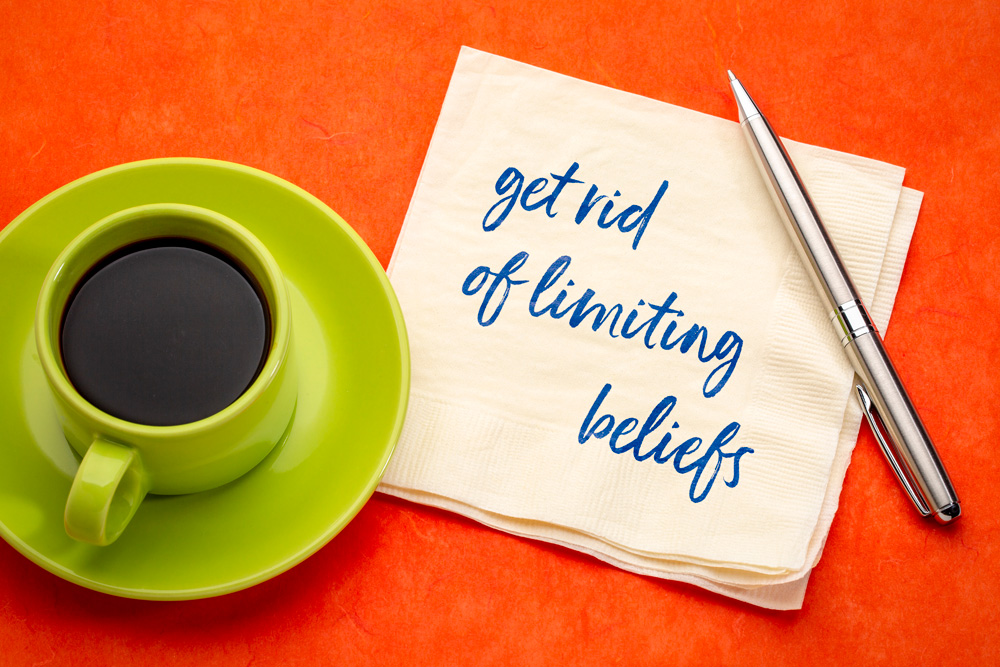Humans are imperfect creatures. You don’t succeed because you have no weaknesses, you succeed because you find your unique strength and focus on developing habits around them. – Tim Ferriss
Repetition, repetition, repetition. Just as your biceps are strengthened by reps, so are other behaviors – even the ones you’d like to change. It can take between 15 and 254 days to create or break a habit, and there’s no exact formula for how long it takes.
Habits can be automatic, mindless activities, and we often don’t recognize them when we are on auto-pilot. Look at the habit of constantly checking social media on your mobile phone, for example. The habit has been and continues to be reinforced by a feedback loop in three basic steps:
- Cue – You receive an alert on your phone from your social media account.
- Routine – The alert prompts your response to check your social media account.
- Reward – You see who just commented or liked your photo or post, which stimulates endorphins and makes you feel good. The reward of positive feelings keeps you responding to the cues and reinforcing the habit.

Now let’s say you want to change your habit of constantly responding to social media alerts. What’s the reason you’d like to make the change? Maybe you feel you are wasting too much time on your devices. What could you do differently? Perhaps you intend to limit the time you spend to one hour a day from 8 to 9 PM. Maybe you don’t want to be pressured to respond to every comment or post by receiving instant notifications, so you uncheck the box that prompts alerts to be sent to your phone. Or maybe you delete the social media account from your phone altogether.
In order to change a habit, a person needs to be mindful and know why a change is needed. That applies to adding something to our repertoire of behaviors, such as making a conscious choice to add strength training to our fitness program, as well as creating an intention to eliminate something, such as ultra-processed foods. We have to know why strength training two to three times a week is a positive habit to acquire, and why dumping UPFs is better for our cardio-vascular health.
When we engage our intentional mind to achieve a specific future outcome, we make conscious choices about what we might do differently. However, at the same time, the habitual mind is functioning outside of our awareness. In fact, many times, we are not mindful of this duality: the unconscious pull and the tug of war between our intentions and our habitual behavior.
Psychologist Thomas Rutledge, Ph.D., writing for Psychology Today, talks about habits as a kind of biological software that one executes to problem solve and complete tasks. Just as obsolete software must be updated because it can’t keep up with new needs, obsolete habits have similar limitations. Changing habits, like updating software requires less reliance on willpower and more focus on learning.
But what is willpower anyway? We often equate willpower with determination, drive, resolve, self-discipline, and self-control. The truth is that you may be extremely determined, but still find it difficult to change a habit. Restrictions, in and of themselves, don’t lead to lasting change because they often result in feelings of deprivation. And this leads to self-sabotage.

Is there a better strategy for lasting change? Yes, it starts with examining something called limiting beliefs. These are deeply embedded thoughts based on our past experiences – the stories we tell ourselves that allow us to make excuses for behavior that doesn’t serve our best self-interest. Limiting beliefs hold us back and keep us stuck.
Often these beliefs are embedded in childhood or adolescence, affecting the way you see people, events, and yourself. Here’s an example. A man in his seventies wanted to lose weight, but he didn’t really think exercise would help. In fact, he could find data online that supported his view that exercise didn’t really contribute to weight loss. However, exercise is important for metabolic health for many other reasons. There is plenty of scientific literature to support 150 minutes of exercise a week for cardiovascular health and longevity, among other things.
Where did his limiting belief originate? It went all the way back to high school, more than 50 years ago, when the attitude about athletic prowess was the proverbial motto, “No pain, no gain.” How could such a long-held limiting belief be challenged? By developing an intention to add a walking program several days a week, by reframing exercise in a more positive light, over time he realized that old cultural bias about suffering to achieve success was no longer relevant. He gradually found pleasure in the act of walking 20-30 minutes a day, and adopted a new mindset about the value of exercise.
Set aside some time to focus on one of your intentions for transformation.
- Identify a healthy habit you want to develop. What cue, routine, and reward might help you establish this habit?
- How will you track your progress?
- How will you hold yourself accountable?
When I started on my own health journey, I dealt with one intention at a time, and still do. I didn’t try to change everything at once; I would have been overwhelmed. Set yourself up for success and create opportunities to act on new intentions and identify your limiting beliefs.
We don’t see things as they are but as we are. – Anais Nin
♥ Susan L. Ward
Integrative Nutrition Health Coach


